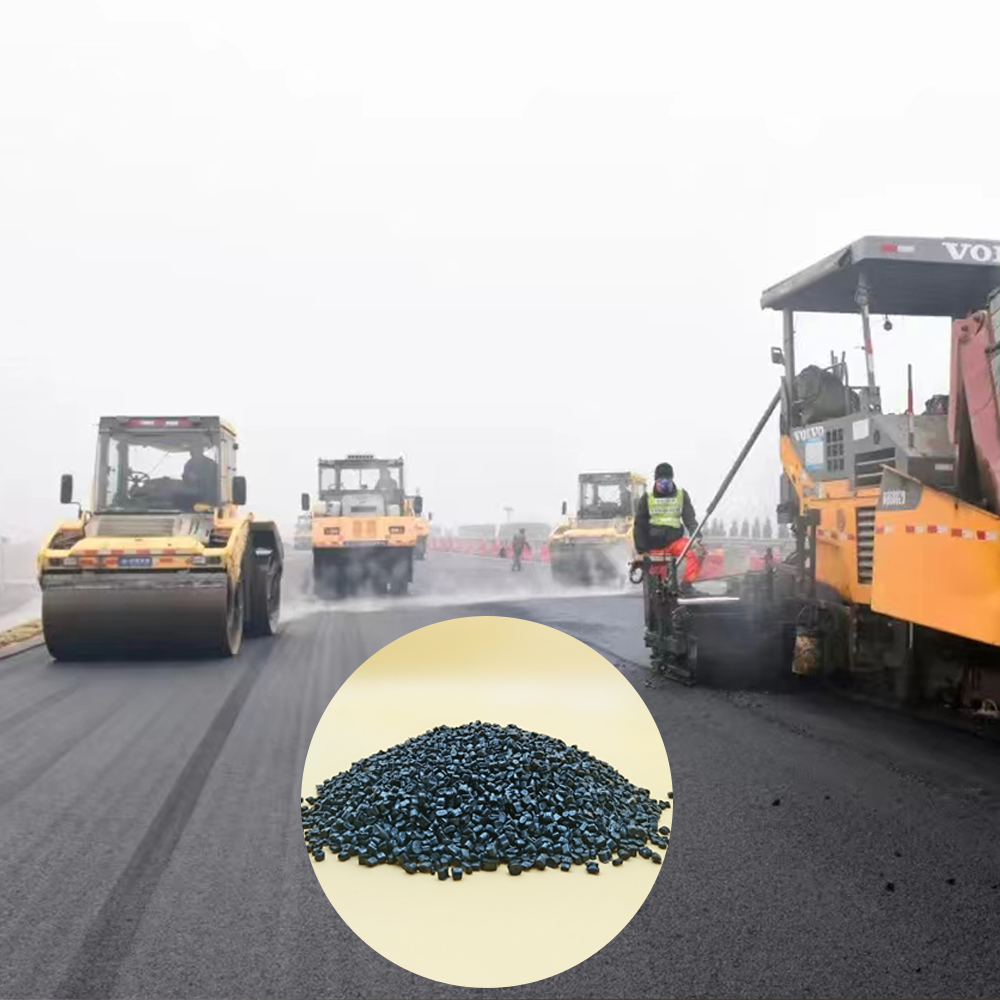Table of Contents
Benefits of Using Anti-Rutting Modifiers on Highways
Highways are essential infrastructure that connects cities and facilitates the movement of goods and people. However, heavy traffic loads and harsh weather conditions can cause rutting on the road surface, leading to Safety hazards and increased maintenance costs. To address this issue, engineers have developed anti-rutting modifiers for bitumen, the primary binding agent used in asphalt pavement.
One of the key benefits of using anti-rutting modifiers on highways is the improved resistance to deformation. Rutting occurs when the road surface becomes compressed and deformed under the weight of passing vehicles. This can create uneven surfaces that increase the risk of accidents and make driving uncomfortable for motorists. By adding anti-rutting modifiers to bitumen, engineers can enhance the material’s ability to withstand heavy loads and maintain its shape over time.
In addition to preventing rutting, anti-rutting modifiers can also extend the lifespan of highways. Constant traffic and exposure to the elements can cause asphalt pavement to deteriorate quickly, leading to the need for frequent repairs and resurfacing. By using modifiers that improve the material’s durability and resistance to deformation, engineers can reduce the frequency of maintenance activities and prolong the lifespan of the road surface.
Furthermore, anti-rutting modifiers can help reduce the overall maintenance costs associated with highways. Regular repairs and resurfacing can be expensive and disruptive to traffic flow. By using modifiers that enhance the performance of bitumen, engineers can reduce the need for frequent maintenance and repairs, saving time and money in the long run. This can also minimize the impact of construction activities on motorists and improve the overall driving experience.
Another benefit of using anti-rutting modifiers on highways is the improved safety for motorists. Rutting can create uneven surfaces that increase the risk of skidding and loss of control, especially in wet or icy conditions. By enhancing the resistance of the road surface to deformation, engineers can create smoother and safer driving conditions for motorists, reducing the likelihood of accidents and injuries.
In conclusion, the use of anti-rutting modifiers for bitumen offers a range of benefits for highways. By improving the resistance to deformation, extending the lifespan of the road surface, reducing maintenance costs, and enhancing safety for motorists, these modifiers can help create more durable and reliable infrastructure for transportation. As the demand for efficient and sustainable highways continues to grow, the use of anti-rutting modifiers will play an increasingly important role in ensuring the long-term performance and safety of our road networks.
How Anti-Deformation Agents Improve Bitumen Performance on Roads
Bitumen, also known as asphalt, is a crucial component in the construction and maintenance of roads. It is a sticky, black, and highly viscous liquid or semi-solid form of petroleum. Bitumen is used as a binding agent in asphalt concrete, which is the most common material used for road construction. However, one of the major challenges faced by road engineers is the rutting or deformation of roads due to heavy traffic loads and high temperatures.
Rutting is the permanent deformation of the road surface caused by the repeated passage of vehicles. It can Lead to safety hazards, increased maintenance costs, and reduced road service life. To address this issue, anti-deformation agents have been developed to improve the performance of bitumen on roads.

Anti-deformation agents are additives that are mixed with bitumen to enhance its resistance to deformation. These modifiers can improve the stiffness, elasticity, and fatigue resistance of bitumen, making it more durable and resilient to heavy traffic loads. One of the most commonly used anti-deformation agents is styrene-butadiene-styrene (SBS) Polymer.
SBS polymer is a synthetic rubber that is added to bitumen to improve its performance. When SBS is mixed with bitumen, it forms a network of interconnected polymer Chains that increase the viscosity and elasticity of the binder. This results in a more flexible and durable asphalt concrete that is less prone to rutting and cracking.
Another popular anti-deformation agent is crumb rubber, which is made from recycled tires. Crumb rubber is added to bitumen to enhance its elasticity and fatigue resistance. The rubber particles act as a cushioning agent, absorbing the stress and strain caused by traffic loads and temperature fluctuations. This helps to prevent rutting and cracking, prolonging the service life of the road.
| Nr. | Products |
| 1 | Rutting resistance Agent for Traffic safety |
In addition to SBS polymer and crumb rubber, there are other anti-deformation agents available in the market, such as polyethylene, polypropylene, and natural rubber. These modifiers can be used alone or in combination to tailor the properties of bitumen to specific road conditions and performance requirements.
Anti-deformation agents are typically added to bitumen at the asphalt mixing plant during the production of asphalt concrete. The dosage and mixing process are carefully controlled to ensure uniform distribution of the modifier throughout the binder. This ensures that the modified bitumen exhibits consistent performance and durability on the road.
The use of anti-deformation agents has been shown to significantly improve the performance of bitumen on roads. Studies have demonstrated that modified bitumen can reduce rutting, cracking, and moisture damage, leading to longer-lasting and safer roads. In addition, the use of anti-deformation agents can help reduce maintenance costs and extend the service life of the road infrastructure.
In conclusion, anti-deformation agents play a crucial role in enhancing the performance of bitumen on roads. By improving the stiffness, elasticity, and fatigue resistance of bitumen, these modifiers help to prevent rutting and cracking, leading to safer and more durable roads. Road engineers and contractors should consider using anti-deformation agents in their asphalt mix designs to ensure the long-term performance and sustainability of road infrastructure.
